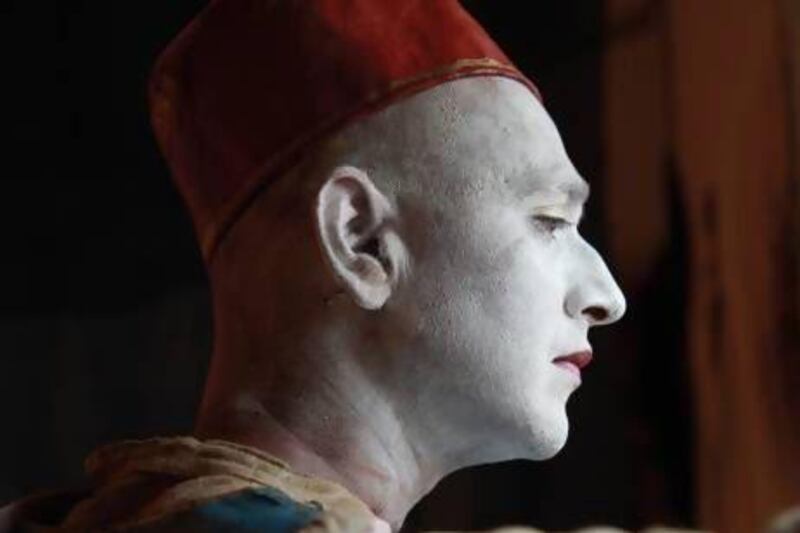Prestigious art exhibitions usually open with fanfare. They do not, on the whole, begin at 4.48am with a man dressed as an Indian cotton farmer dragging 130 kilos of fabric to an unfinished part of a gallery. It’s also rare that the artist will then remain in the exhibition space for the next 65 hours, allowing anyone who visits to see him drawing, washing, eating – and maybe even sleeping.
Welcome to the latest intriguing project by the Indian performance artist Nikhil Chopra, whose background was in fine art before he took his performative exhibitions across the world, including to the Venice Biennale.
“It’s honestly not a test of endurance,” he says laughing. “Long durations of time bring about transformation and I want that to be seen on the walls. I want to feel I’ve lived in that space. In fact, to have been offered the time to do this is a luxury, more than anything else.”
Chopra will leave Goa later this month for the north-west of England, where his Coal on Cotton show at the Whitworth Gallery will be one of the highlights of the biennial Manchester International Festival. Last October, The National reported on the Pakistani artist Aisha Khalid's installation in the very same building, a reflection on the colonial connections between the twinned textile cities of Manchester and Faisalabad. Chopra covers similar ground, this time making links between the English city and Mumbai through his use of materials.
“Cotton’s power is underrated – this was the fabric that drove colonialism and the industrial revolution,” he says. “When I came to see a preserved mill in Manchester, it resonated really strongly with me – my first instinct was to roll my eyes a little at the British obsession with tradition and history, but when I looked a little deeper, what really struck me were the appalling working conditions.
“You can say India is much more youthful and forward-looking than Britain. But the flip side is that people are still working in these terrible environments. That’s the classic colonial story really – you take all the nasty bits of life elsewhere.”
So in Manchester, after dragging the cotton through the gallery, he will install an enormous tent made from cotton manufactured in mills just outside Mumbai. Once the interior is clad, his character will transform into a mill worker, making huge charcoal drawings on the calico cotton inside. He hopes that it’s not just a commentary on Mumbai and Manchester, but the whole world.
"For example, I've spent many years in Dubai and it's an interesting city built on trade," he explains. "Every day, you can see both the creative and destructive power of that. So in a sense, the show wants to throw a little bit of light on the conditions of the farmer in India, the mill worker in China, maybe even look at a mill owner based in Dubai. Exploring these power dynamics should be really interesting if Coal on Cotton works out the way I hope."
Of course, performance art is never so scripted. What happens if an excitable visitor, after a night of clubbing, prods him awake at 4.30am on a Sunday morning?
“They can do that!” he squeals with amusement. “It drives the performance in really interesting directions. People don’t always understand performance art but it’s simple. It’s just an exciting form of portraiture – you’re creating a picture, but becoming it, too.”
Open continuously from 4.48am on Friday until 9.37pm on Sunday, Whitworth Art Gallery, Manchester. For more information, visit www.whitworth.manchester.ac.uk
Follow us
[ @LifeNationalUAE ]
And follow us on Facebook for discussions, entertainment, reviews, wellness and news.





